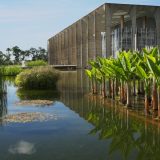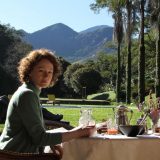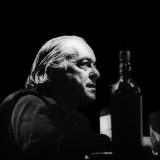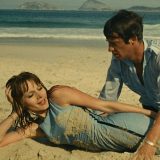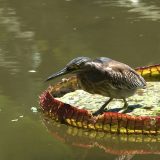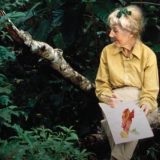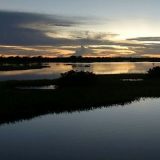Landscape Film: Roberto Burle Marx
Sunday, June 9* & Sunday, September 29
This documentary takes a sensory journey through the art and life of the Brazilian landscape architect and painter best known for the iconic black-and-white mosaic promenades that line Rio’s Copacabana Beach.
The film also explores Burle Marx’s passion for native flora, and the many new species he discovered on his research and collecting trips. Highlights include the Burle Marx Sitio, Flamengo Park and Moreira Salles Institute in Rio de Janeiro, along with major projects in Recife, Brasilia, France and Venezuela.
*Sunday, June 9 screening followed by conversation with Director João Vargas Penna
(Joao Vargas Penna, 2018, 74 minutes)
About the Director
João Vargas Penna holds a Master’s in Film and Television from UCLA. Penna lives in Belo Horizonte, Brazil and works as a filmmaker and visual artist, producing installations, documentaries and TV series focused on the arts, landscapes, and natural and social environments. His works have been exhibited and awarded at festivals around the world including the 5th Mercosul Biennale (Porto Alegre), the It’s All True International Documentary Film Festival (São Paulo), the International Short Film Festival of São Paulo, and the Centre Georges Pompidou (Paris).

